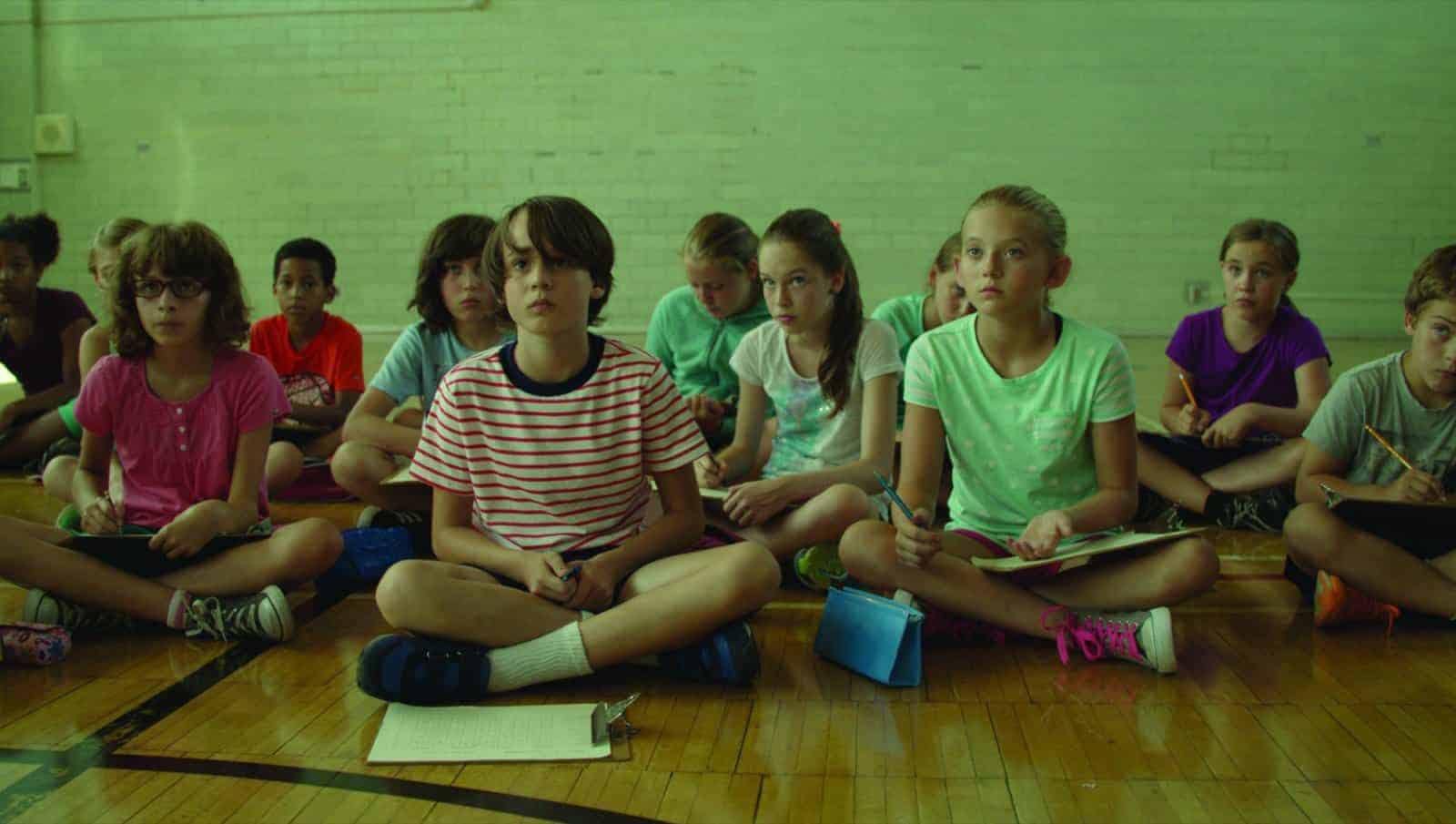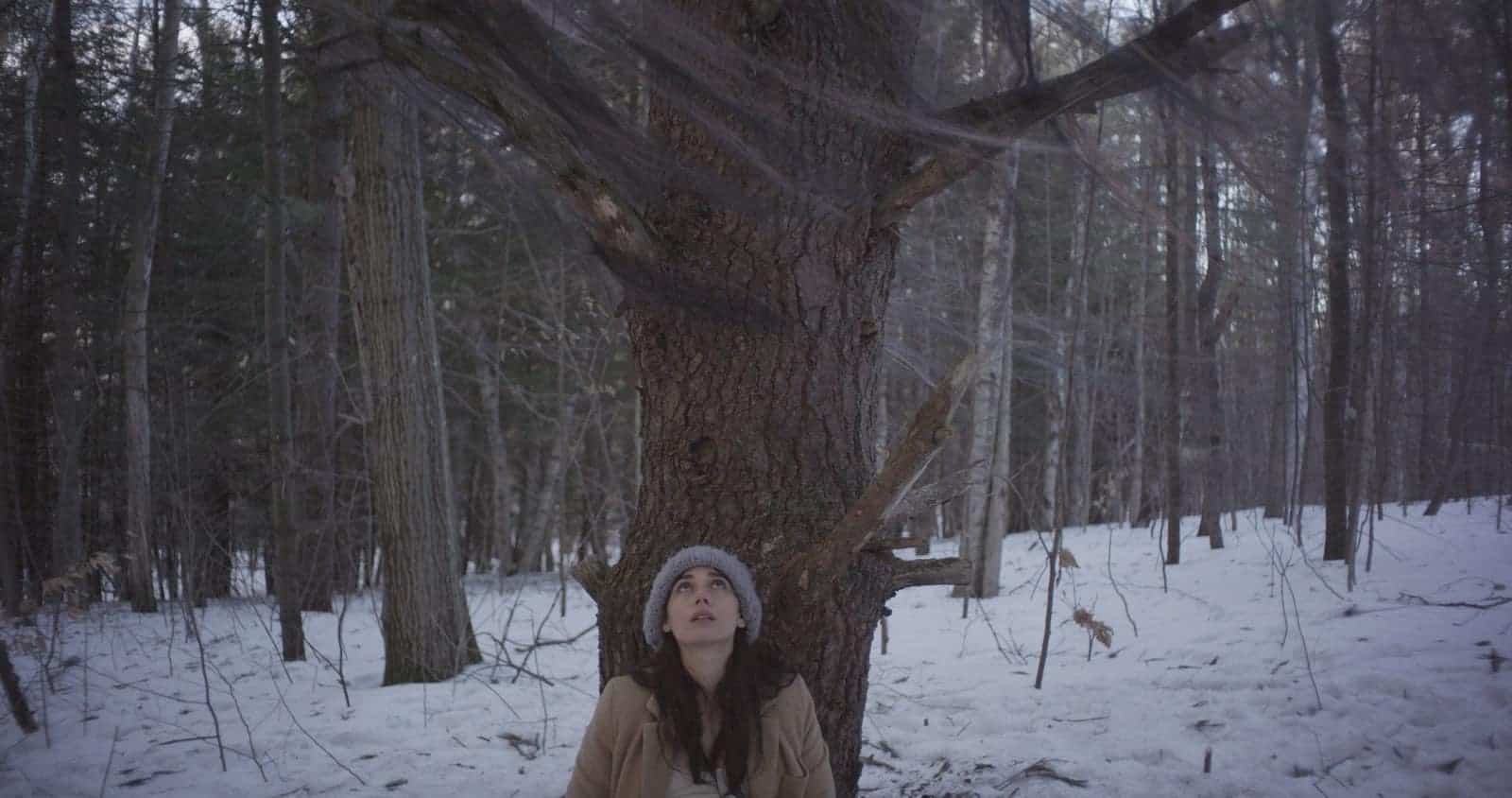Falardeau discusses writing and making the film, the political discussions it’s provoked, and how he made the first great Canadian political satire on film. The film is the epitome of a great political satire: absolutely hilarious and with enough on its mind to make you think.
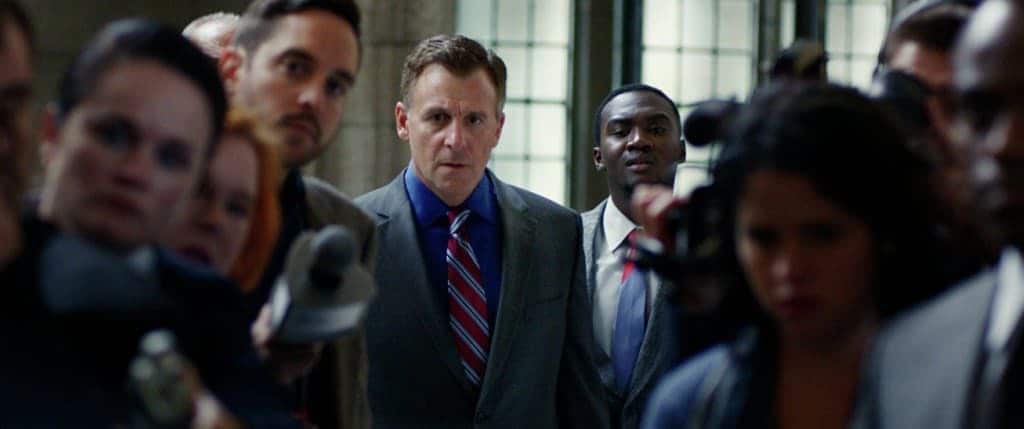
Philippe Falardeau’s My Internship in Canada (Guibord s’en va-t-en Guerre) is the epitome of a great political satire: absolutely hilarious and with enough on its mind to make you think. Set in a small town in rural Quebec, the film follows member of parliament (MP) Guibord (Patrick Huard), an ex-hockey player who spends most of his time coaching peewee and attending local events, as he discovers he holds the deciding vote about whether Canada will go to war. In an attempt to keep the peace in his family — his wife is pro and his daughter is against — he decides he’ll consult voters, which results in a comedy of errors.
Meanwhile, Guibord has an idealistic Haitian intern, Souverain (Irdens Exantus), who is schooled in Jean-Jacques Rousseau but has little experience with real politics. As they team up, a buddy comedy ensues, whilst they deal with the local problems which are preoccupying Guibord’s constituents. Although the film works as a thoughtful interrogation of the limits of democracy, it’s always with a light touch.
As the followup to Falardeau’s marvelous Oscar-nominated drama Monsieur Lazhar, which was about coping with grief, My Internship couldn’t be more different, proving Falardeau is one of Canada’s greatest National Treasures. I sat down with Falardeau to discuss writing and making the film, the discussions it’s provoked, and how he made the first great Canadian political satire on film.
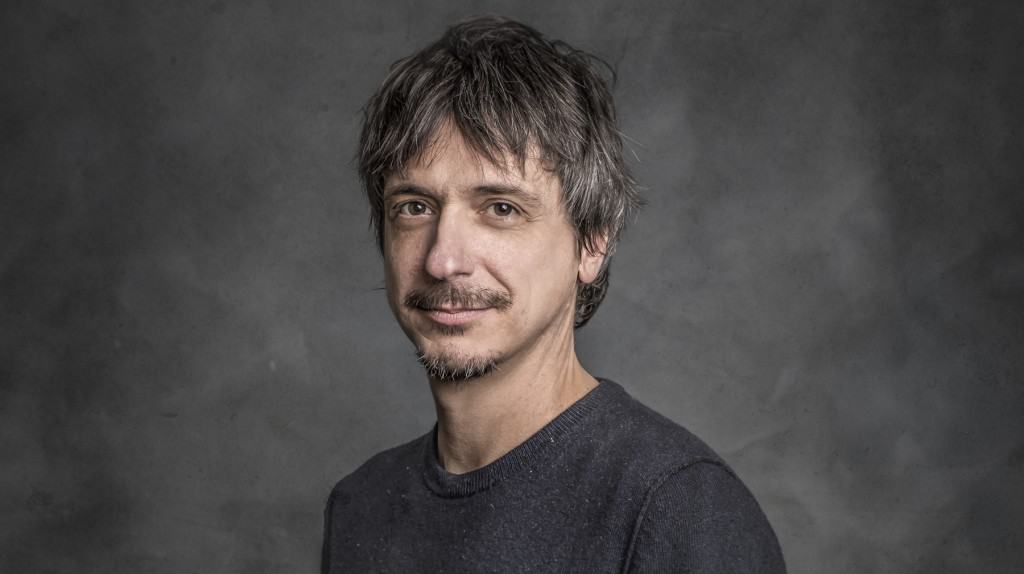
7R: I’ve seen My Internship in Canada a couple of times now, and I really love it. The first time I saw the film I was in pain I was laughing so hard.
Philippe Falardeau: It’s very strange. I’ve screened the film a lot in English Canada and in Europe, and now I’m going to go screen it in the United States. One thing that’s difficult when you make a comedy, you always wonder if the humour is going to travel. It surprised me to find out that people are laughing more outside Quebec than in my own province. I tend to think I’ve got some sort of Anglo-Saxon humour.
Listen to our podcast episode about My Internship in Canada and In the Loop
7R: It’s very funny, and it’s also very Canadian, which I got a huge kick out of. What was your process for putting it together?
Philippe Falardeau: The process started with the will to make a film about politics. I studied political science and international relations. I never studied cinema. I knew that there’s no real tradition of political satire in Canada. I didn’t have any references to start with except films like Wag the Dog. But at the same time, I wanted to talk about something real that related to not only Canadian politics, but our relationship to democracy. The challenge was to make both: to make it funny and meaningful at the same time.
Oddly, I have more political conversations when I present the film outside Canada. All of a sudden, it becomes about the limits of democracy, which is understandable in any Western democracy. Inside Canada, we will see the absurdities of our representative system of election, of lobbying, of direct democracy, of a prime minister who holds so much power in his hands — much more than the president of the United States. Not globally, of course, but inside the system he has much more power than the US president. So these things are understandable from a Canadian perspective.
7R: A lot of the comedy in the film is visual, in the way that you’re shooting the film — the way heads pop into the frame or how you have something going on in the foreground and in the background there’s madness. What are your strategies for those visual gags?
Philippe Falardeau: There’s always humour in my films, even a drama like Monsieur Lazhar, you will find that you will laugh five or six times in the film. It’s the distance, the time, how you position the camera that creates humour more than a closed joke or a line.
Part of my inspiration came from Jacques Tati, who made these brilliant films that I didn’t quite get when I was younger. He would stage stuff in one frame, in one shot. It’s a brand of comedy that’s very burlesque but subtle at the same time. It’s intellectually challenging to create humour like that.
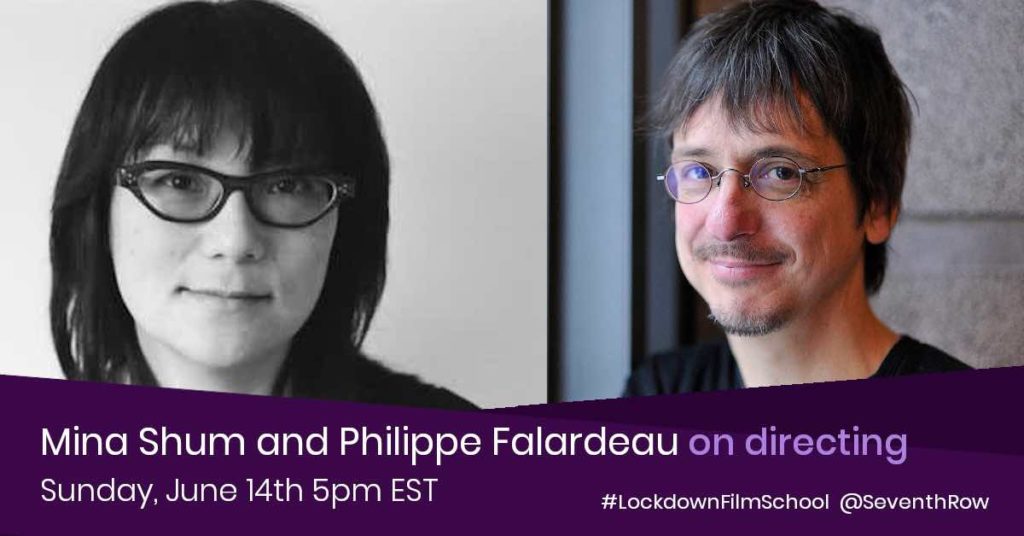
Watch our directing masterclass with Philippe Falardeau and Mina Shum
7R: When you’re looking at a scene, how do you decide how you’re going to frame it?
Philippe Falardeau: I have the advantage of writing the script, so when I’m writing there’s an image that pops up in my mind. When I block the scene, I usually have a very, very precise idea of what I want. Now, I will wait for the actors. If someone has a better idea, I will steal it immediately.I remember my first film, I didn’t want to take anyone else’s idea, because I didn’t want people to think that I didn’t know what I was doing and that I didn’t have ideas of my own, which is ridiculous. But it depends a lot on the locations. Once you see the locations, you see “OK, it might not work like I had in mind.”
Another factor is what is the type of rhythm that you want to give the film. In this case, I had the advantage of having the theme song beforehand because I worked with Martin Léon, the composer, before we started shooting. So I had this rhythm, this marching band rhythm in my mind that helped me stage certain scenes.
7R: How did that influence how you were staging certain scenes?
Philippe Falardeau: A lot of staging, when you direct actors, a lot of it will come down to faster or slower. You don’t want to cram the actors’ heads with all kinds of directions. Sometimes, it’s just about “OK, cut. Just a bit faster.” “Well, how fast?” And then I would take my iPhone, and I would have them listen to my music. It’s like a metronome, and they know how fast.
One of the jobs of the director is to make sure we have the right speed at the right time. If we’re in the third act and we’re closing to the end of the movie, and it’s a slow pace, in a film like Guibord, you know it’s not going to work. So you really have to zoom out every time you shoot a scene. Where am I in the film? What comes before? What comes after? What should be the speed in that scene?
7R: When you’re talking about a distance, do you mean just in the wide shots or also when you’re coming in closer on the characters?
Philippe Falardeau: Distance is subjective in the sense that you can put the camera super far away, and you can create intimacy depending on the lens that you use. I don’t enjoy super long shot lens, like 200mm lens or 150 mm lens, because you sense the artifice of the shot with very short depth of field.
I like lenses that are around 35mm, 28mm — 32mm is my favourite. It’s almost like if you were there, close to the person. The depth of field and the width of what you see is almost as if you were standing there. I just shot a movie in New York with Liev Schreiber called The Bleeder. I think I used pretty much just two lenses, 35mm and 28mm. You’re kind of with them all the time so it creates that kind of intimacy.
7R: One of the things you do so well is that the rhythm is so good and important. I’m wondering how that gets translated to what you’re doing on set vs. what you’re finding in the edit?
Philippe Falardeau: I always feel in the editing room that I could have been even more surgical on the set. But you don’t want to trap the actors. You want to let them loose. Sometimes, I feel that my camera shots were not surgical enough and that I should have pressed a bit more, even a bit faster. But you have the music and the editing for that. Although if you look at Guibord, it’s not a frantic or over-cut film, there is some camera movement that sometimes is reminiscent of these dry pans that Wes Anderson does. The marching band theme song with the trumpets and trombones helps with that. You feel that there’s always a metronome.
It was important because if you look at the story, it’s the story of a guy who is always stopped by something. He wants to get from point A to point B, but he can’t. This can be very frustrating for the audience. If you don’t give the audience something to hold onto that’s marching forward, it can be like “oh man where is this going?” You need a strong song that told the audience that the film is still moving forward. We’re on the train, and it’s not stopping.
7R: I’m wondering about working with the actors, because you get these really great comic performances from them.
Philippe Falardeau: The guy who plays Souverain had no clue about politics so when he said the lines about our political system, it felt wrong because he didn’t know what he was talking about. So we started to give him political science courses and history courses. He read Jean-Jacques Rousseau, Du Contrat Social, so when he speaks now in the film, you feel that he knows all about it because he did his homework.
I wasn’t sure if my foot was going to be on the pedal to go 200 km/hr or if I would use restraint. One week before we started shooting, I’m up in this small mining town with my assistant director and Mommy, Xavier Dolan’s film, comes out in cinemas, and I go see Mommy. Of course, Mommy has nothing to do with Guibord. But Xavier Dolan has one speed. It’s like 400 km/hr. I understood something about Guibord by watching Mommy. I cannot hold back the horses. I need to unleash them. I think part of what works in the rhythm of Guibord is due to the epiphany I had watching Xavier Dolan’s Mommy.
7R: I’m wondering about the opening scene to the film. You’ve got this mix of sound clips from the film that are overlaid on the credits.
Philippe Falardeau: I love overtures. Before a film started, way back when, for instance, my favourite film of all time is Lawrence of Arabia, and you get a black screen and a musical overture. I thought, let’s do an overture by visiting sound excerpts of what we’re going to see during the film. Of course, it’s impossible for the audience to understand what they’re hearing. But it creates a convention and a tone for the rest of the film. Then, boom you cut, and all you hear is the sound of a neon light turning on and there’s this crappy art direction with this Canada map on the wall.
7R: I like how you then zoom in on the map to show us where we are and the camera starts shaking in time with the music.
Philippe Falardeau: Yeah, this is crazy stuff that I think I should do more in my cinema. It’s very playful. It’s acknowledging and not taking yourself seriously. It’s saying this is going to be some sort of roller coaster ride, but I’m winking at the audience at the same time. I think that the camera shaking is a metaphor of this crazy country, always on the verge of exploding but not exploding. Canada is like this bipolar country in which everything is not moving forward. It’s a miracle that it’s still one country, probably because we’re not passionate enough politically.
Showing the film in Mexico City, three weeks ago, I introduced the film by saying that Canada is seen from the outside as kind of boring where nothing happens. We’re not a superpower. Our army looks kind of a ridiculous. So we tend to see Canada as a non-actor politically. But from inside, there’s a lot of stuff happening. All this for me is included in that camera shake.
My Internship in Canada screens April 2 at the IFC Center as part of their See the North program. Falardeau will be present after the film for a Q&A.
